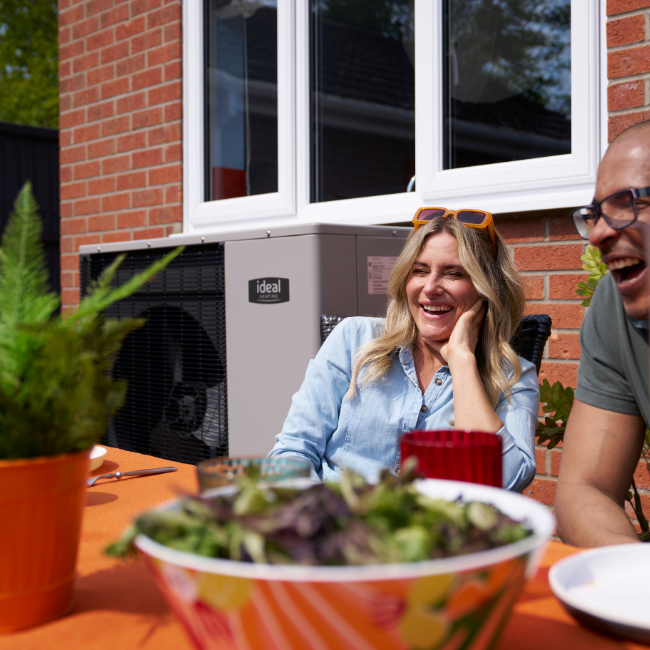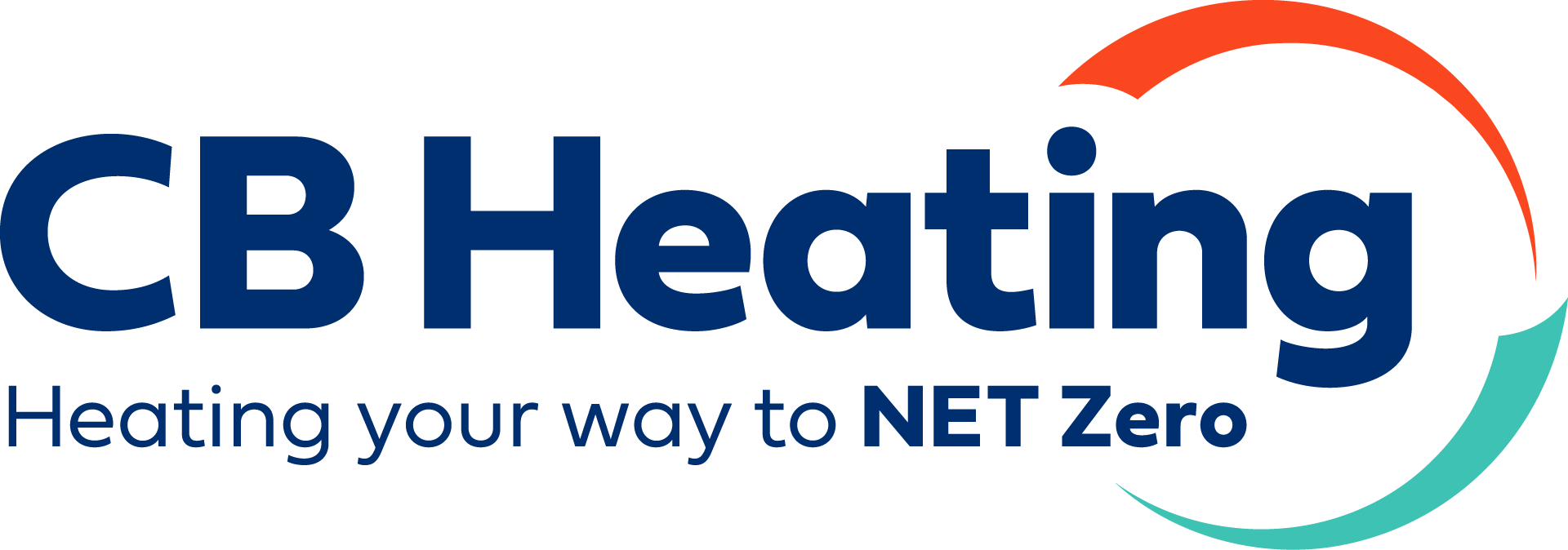How much do air source heat pumps cost?
sHeat pump pricing
Air source heat pumps (ASHPs) are a popular option for homeowners. They help save energy and reduce carbon emissions.
However, one common question arises: how much do these systems actually cost?
This article will explore the costs of air source heat pumps. We will look at installation, energy savings, and overall cost-effectiveness. We’ll also explore the UK market to give you a comprehensive understanding of what to expect.
Before we dive into costs, it’s crucial to understand what air source heat pumps are and how they function. An air source heat pump absorbs heat from the outside air and transfers it into your home. It can be used for heating your home and hot water making it a great alternative to a gas boiler for many households.
The heat pumps that we supply and install is an air to water heat pump. These are the most common type and distribute heat via your wet central heating system. They are suitable for underfloor heating systems or large radiators, which operate at lower temperatures.


Heat pump installation costs
The initial cost of installation for an air source heat pump can vary significantly based on several factors, including the type of system, the size of your home, and your location. Factors such as your current home insulation, the size of your radiators and how much space you have available are all factors.
According to the Energy Savings Trust, the cost of an air source heat pump can vary between £6,500 to £11,500. Your estimate will probably take into account the following:
- Heat pump unit: The price of the unit itself, installation, and any necessary modifications to your existing heating system.
- Size and type of heat pump: Larger homes may require more powerful pumps, leading to higher costs.
- Home modifications: If your home requires additional work, such as upgrading radiators or installing underfloor heating, these can add to the overall cost.
Location: Installation costs can vary by region due to differences in labour rates and availability of qualified installers.
Spread the cost with monthly payments
(Subject to status and affordability)
A finance package means you could spread the cost of your air source heat pump installation with manageable monthly payments. Below is an illustrative representative example of what your typical repayments could look like over 5 or 10 years.
If you live in Scotland, you can apply for an interest-free loan of up to £7,500 through Home Energy Scotland.
Finance available at a fixed 9.9% APR representative, subject to status and credit check. The amount to be financed will vary depending on the heat pump required for your property and your chosen deposit.
Representative example 5-year Finance Plan | |
| Cash price | £12,350 |
| Government grant (BUS) | -£7,500 |
| Balance | £4,850 |
| Deposit (15%) | £727.50 |
| Credit amount | £4,122.50 |
| Interest | £1,069.30 |
| Total amount payable (inc. deposit) | £5,919.30 |
| Number of repayments | 60 |
| APR | 9.9% |
| Monthly payment amount | £86.53 |
Representative example 10-year Finance Plan | |
| Cash price | £12,350 |
| Government grant (BUS) | -£7,500 |
| Balance | £4,850 |
| Deposit (15%) | £727.50 |
| Credit amount | £4,122.50 |
| Interest | £2,273.50 |
| Total amount payable (inc. deposit) | £7,123.50 |
| Number of repayments | 120 |
| APR | 9.9% |
| Monthly payment amount | £53.30 |
Important information
Finance is subject to eligibility, status, and affordability checks. UK residents aged 18 or over only.
Deposit required: minimum 15%, maximum 25%.
Prices shown include the Boiler Upgrade Scheme (BUS) grant, subject to eligibility and approval by Ofgem.
We do not receive any commission or incentive for introducing you to our finance provider.
You are free to choose your own finance option.
Failure to keep up with repayments may effect your credit rating
CB Heating Ltd trading as EDF Heat Pumps is a company registered in England and Wales, Company number 09885603, Registered office, Nova North, 11 Bressenden Place, London, SW1E 5BY.
CB Heating Ltd trading as EDF Heat Pumps is also an Appointed Representative of Shermin Finance Limited, Company number 01276121, Registered office, HomeServe, Cable Drive, Walsall, England, WS2 7BN.
Authorised and regulated by the Financial Conduct Authority, FRN 727594. Shermin Finance Limited acts as a credit broker and is not a lender – they can introduce you to a panel of finance providers and do not charge fees for their Consumer Credit services.

Heat pump grants and incentives
In the UK, government incentives like the Boiler Upgrade Scheme can offset the initial costs of an air source heat pump. The BUS grant pays eligible home owners a grant of £7,500 towards heat pump costs. There are eligibility checks for the grant so it is worth checking that you are eligible.
Some UK banks are also offering customers incentives to switch to an air source heat pump. These offers are to encourage homeowners to improve the energy efficiency of their homes. Some of the banks that are offering this incentive are:
Barclays: £2,000 cashback for installing a heat pump
Eligibility: You must be an existing Barclays mortgage customer and install a home energy improvement such as a heat pump. You can apply here.
Lloyds Bank: Up to £2,000 Eco home reward towards a range of energy upgrades
Eligibility: You must be a Lloyds Bank mortgage customer to receive the offer. Apply here.
Halifax: Up to £2,000 green living reward
Eligibility: You must apply for either a new mortgage or borrowing after July 2024. More details here.

Heat pump efficiency
Air source heat pumps are one of the most efficient ways of heating your home. They generate up to three times the amount of heat compared to a traditional G rated gas boiler. This makes them up to 300% more efficient in comparison. They are a sustainable, low-carbon option to heat your home and hot water, helping you save energy and money.
Once installed, air source heat pumps could offer significant savings on energy bills. The efficiency of these systems is measured by the Coefficient of Performance (COP). A COP of 3 means that for every unit of electricity used, the pump generates three units of heat. This is why heat pumps are so efficient compared to gas boilers. A traditional gas boiler will only ever be 90-100% efficient.
Several things effect how efficient your heat pump will be:
- Temperature: Your heat pump will work harder in the winter months and therefore be slightly less efficient.
- Design: An undersized heat pump may not be able to keep up with the amount of heat the home loses (heat loss), while an oversized heat pump may turn on and off frequently, which decreases efficiency.
- Insulation: If your home is well-insulated, a heat pump doesn’t work as hard, as your property can retain its heat better.
- Maintenance: Like any heating system, ensuring you keep up with maintenance and servicing ensures the heat pump operates at its optimal efficiency.
- Radiator size: The size and type of your radiators can affect efficiency. Bigger radiators are more efficient because the heat pump doesn’t have to operate at such a high temperature. Underfloor heating is also a great option due to its larger surface area. If you want to read more about radiators, this post goes into more detail.
- Weather compensation: Getting the weather compensation right can help improve efficiency.
- Hot water: Making sure the hot water isn’t set too hot can help improve efficiency. Most heat pumps are designed to emit hot water at temperatures between 45-50°C, which covers most needs.
If you’d like even more detail on heat pump efficiencies, you can read our comprehensive post here.

Heat pump operating costs
You could save up to £290 a year on your energy bills (4) if you replace an old G-rated gas boiler. If you replace a new A-rated gas boiler, your energy bills could be similar.
If you replace old electric storage heaters, you could save up to £1,000 each year on energy bills. Heat pump efficiency changes during the year. To get a true cost, check the average for the entire year.
The cost to run an air source heat pump could be zero. This happens if the heat pump uses renewable energy from sources like solar panels on your property. Actual costs are hard to determine. They depend on how the heating system is used and installed. They also depend on the system’s efficiency and your home’s heat loss profile.
Just as importantly, you will also save almost two tonnes of CO2 emissions every year(3) by switching to an air source heat pump. For context, that means not driving a car for a whole year. It also has the same carbon benefit as growing 100 trees each year.

Will a heat pump cost me more to run?
Running costs can vary on several factors such as your energy tariff, and the performance of your heat pump. With current electricity prices, the costs of running an air source heat pump will be similar to your average gas boiler unless you take out a heat pump specific tariff.
However, if you’re replacing an older, G-rated gas boiler, you could save around £290 a year on your energy bills (6).
There are also ways to save even more by switching to a heat pump tariff like the EDF Heat Pump and Save tracker(3) tariff which gives you zero standing charges for 12 months. You also pay less for running your air source heat pump at certain times.

Are air source heat pumps cost effective?
While the upfront costs of air source heat pumps may seem high, the long-term savings could be substantial. The exact savings will depend on your existing energy usage, but householders can see a reduction their energy bills especially if they use their heat pump alongside other energy saving measures such as solar PV and batteries.
Alternative heating solutions

Most homes in the UK use gas boilers to heat water and radiators. However, this is changing as the world shifts away from fossil fuels. So what alternatives are available to you if you’re thinking about cutting the gas off at your home?
There are currently a number of other viable forms of heating. These include electric storage heaters, biomass heating, and ground and water source heat pumps.
Electric storage heaters
The main downside to storage heaters is that they’re incredibly inefficient and expensive to run. They need to use a lot of electricity to heat up the heating elements. These elements then release heat into your spaces. Also, except for a few new models, electric storage heaters are harder to control. This is because they take a long time to heat up.
Biomass heating
Rather than logs on a roaring fire, biomass heaters use refined wood pellets to reduce the amount of soot that gets produced. By starting with drier wood, the pellets burn quickly and reach a high heat, so less heavy carbon (soot) gets emitted. They create less emissions than gas or oil boilers, but they’re still burning a fuel – so therefore creating emissions. A lot of energy needs to be used to cut down the trees, dry them out, chip them, and turn them into pellets. So while homeowners don’t have as many emissions at their boiler, it’s essentially passing the buck elsewhere.
Ground source heat pumps
Heat pumps don’t “generate” heat themselves but actually move heat from one place to another. We provide more information about how they work and what types are available here. Ground and water source heat pumps use a long loop of coolant. This loop pulls heat from a source.
Ground source systems often require a deep borehole drilled into the ground. This can be as deep as 150 meters. They may not work well in many geological areas. Water source heat pumps need to be close to an aquifer to extract heat. While these are seen as more reliable sources of energy, they are more expensive to install. They also harm the local environment.
Ground source boreholes can freeze the ground around them in cold weather. This makes them unusable. If everyone uses the heat from underground aquifers, we cannot predict the effects on many ecosystems later on.
Ready to take the next step?
We have installed high-efficiency systems for over 25 years. We are sure we can create a system that keeps you warm and comfortable all year.
Our Heat Pump Promise means that if your heat pump does not heat your home as promised, we will give you a refund.
NOTES
Indicative pricing
1. The price above reflects the £7,500 government boiler upgrade scheme and is based on our lowest priced heat pump, cylinder and controls. The figure quoted does not reflect any radiator upgrades that may be required. Your individual quote will be specific to you and your requirements may rise depending on the system required to suit your home.
Boiler upgrade scheme
2. Eligibility checks apply. Visit the UK Government website for details: https://www.gov.uk/apply-boiler-upgrade-scheme
Zero standing charges
A typical customer can save £164 per year versus the current single-rate price cap tariff. This is based on the following;
3. £164 of savings are based on a customer using Ofgem’s typical domestic consumption of 2700 kWh electricity and with heating provided by an air source heat pump with a coefficient of performance (CoP) of 3.1 providing equivalent heat to that from a 94% gas boiler using 11,500 kWh of gas.
Save £260 per year
4. The Energy Saving Trust: Figures are based on fuel prices as of July 2025. Find out more about how we made these calculations. The running cost you can expect will depend on the size of your home, any heating system upgrade and any saving will also depend on the fuel type being replaced. You can expect the saving to range between old and new, depending on the age of your current heating system. https://energysavingtrust.org.uk/advice/air-source-heat-pumps/
Efficiencies
5. Heat Pump investment roadmap, UK Government https://www.gov.uk/government/publications/heat-pump-net-zero-investment-roadmap/heat-pump-investment-roadmap-leading-the-way-to-net-zero
The Heat Pump Promise
6. With our Heat Pump Promise if your heat pump doesn’t perform as promised, we’ll give you a refund. Terms & Conditions apply https://www.cbheating.co.uk/wp-content/uploads/2025/05/H3373-AW1-V3.pdf



